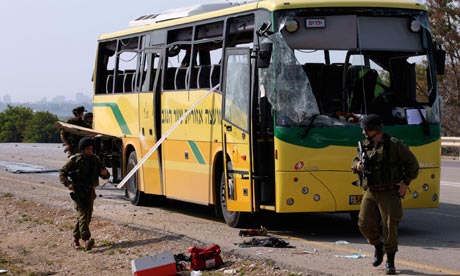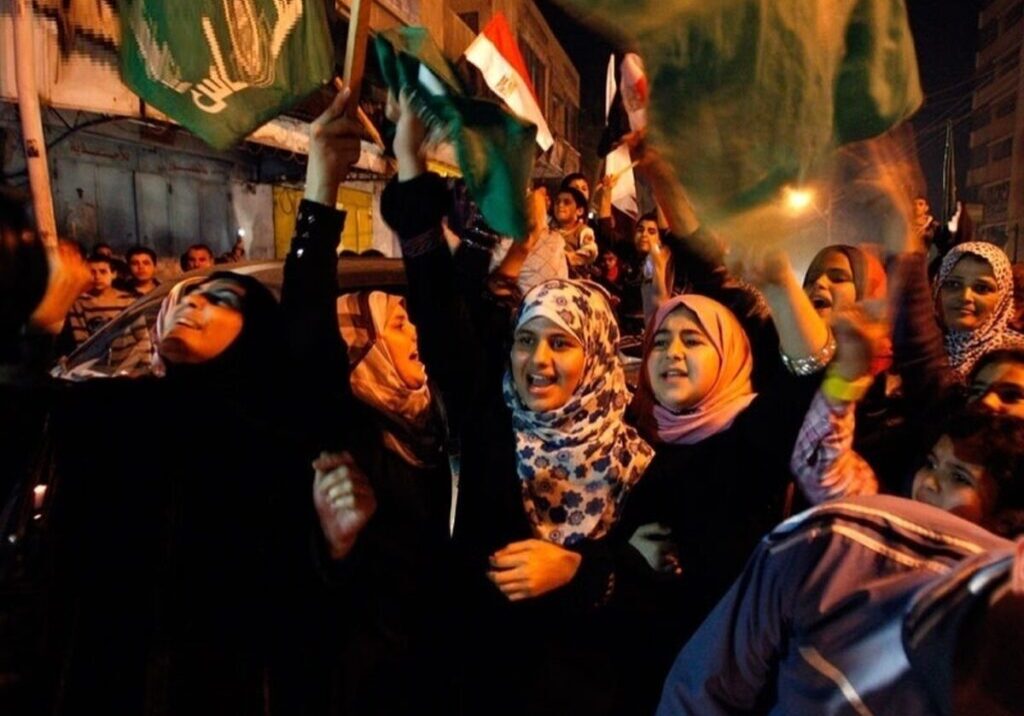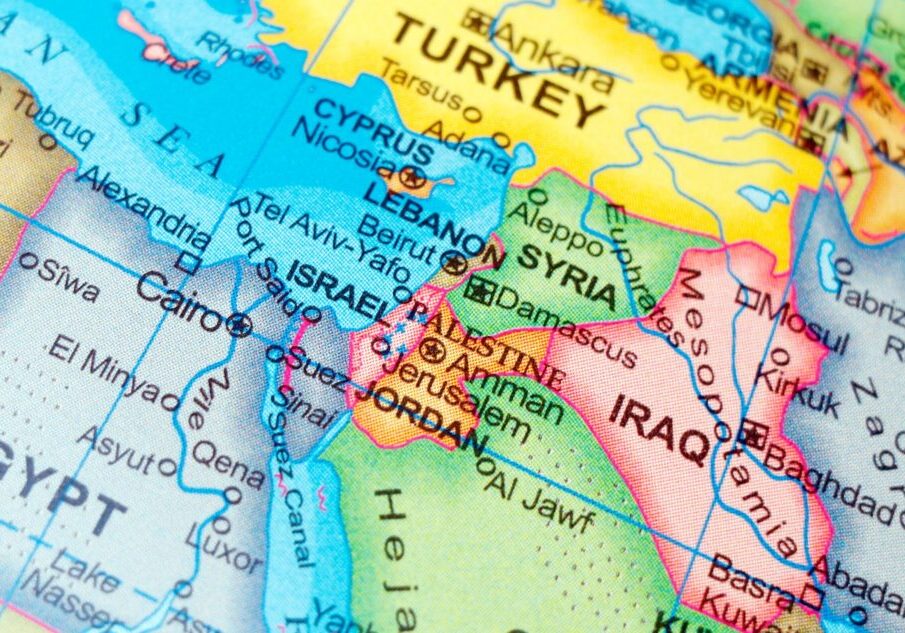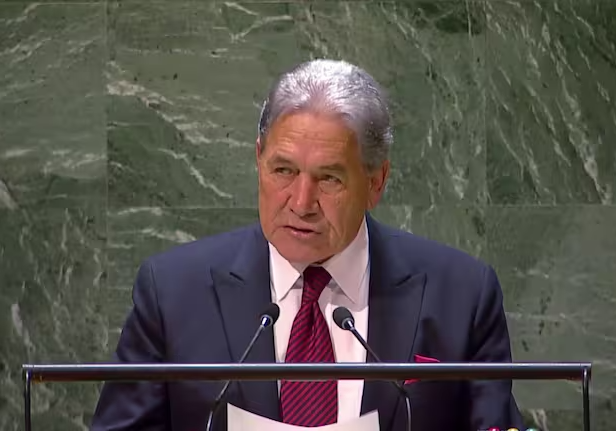Australia/Israel Review
Scribblings: A Rocket from Nowhere?
Apr 18, 2011 | Tzvi Fleischer

Tzvi Fleischer
A Rocket from Nowhere?
Readers will probably have heard of the horrifying attack on an Israeli schoolbus from Gaza on April 7. Fortunately, the bus was nearly empty, so only one 16-year-old student and the driver were seriously injured. If the bus had been struck a few minutes earlier, before the bulk of the passengers had disembarked, dozens of school students would likely have been killed.
It was widely reported that the bus was struck by an anti-tank missile, and that Hamas’ military wing took responsibility for the attack. It was less widely reported that the weapon in question was an advanced Russian-made “Kornet” anti-tank missile.
Why is this significant? Firstly, because this is a highly accurate and advanced laser-guided weapon. In other words, there was no possible mistake; the Hamas operative who fired it hit exactly what he was aiming at – a clearly identifiable, distinctively yellow school bus.
And secondly, this was not a weapon Hamas could ever hope to manufacture for itself in Gaza. In fact, the Kornet is made only in Russia by KBP Industries, and then sold only under licence from the Russian Government – usually exclusively to states.
So how did Hamas get one? Very likely from Syria, which has bought Kornets from Russia, and is known to pass on advanced weapons to terrorist groups like Hamas and Hezbollah. It was probably smuggled via Egypt and through the tunnels under the Sinai border into Gaza.
Moreover, the school bus attack follows Israel’s seizure of advanced Chinese-designed but Iranian-made “Nasr” anti-ship missiles bound for Gaza in March on a ship originating from the Syrian port of Latakia.
The point here is that anyone who claims not to understand why Israel needs to maintain a blockade of Gaza now has a very clear answer – to prevent the import of weapons like the Kornet, which will likely be used for spectacularly bloody attacks on targets like the school bus.
The probable role of Damascus in attacks like this one also illustrates what is at stake in the freedom struggle going on within Syria. If the Syrian regime is changed and ceases to arm and support groups like Hamas and Hezbollah, Israel’s strategic situation – as well as the climate for peacemaking – will improve immensely.
In the meantime, pressure needs to be stepped up on Russia to curb its arms exports to states likely to hand them to terrorists, especially Syria.
Incitement for Passover
I’ve encountered some people who are inclined to dismiss the issue of Palestinian incitement and the glorification of terrorists promoted by the Palestinian Authority (PA).
For instance, take the vast public honours bestowed by the PA in memory of Dalal Mughrabi, who led an attack on an Israeli bus in 1978 which killed 37 civilians, including several children. A public square outside Ramallah, a street, at least three schools, sporting tournaments, summer camps, a community centre, a computer centre, an adult education course, a military unit, a dance troupe, a dormitory and other public events and facilities have all been named in her honour. She is also frequently the subject of glowing tributes in the tightly-controlled official PA media.
I have heard it argued that this is not really such a big deal. It is asserted that Mughrabi’s acts happened a long time ago, before there was any direct Israel-PLO peace process. And, some say, every national movement needs myths and heroic founding figures – Mughrabi is simply one for the Fatah movement, to which she belonged. After all, Israel and the Jews also have some founding figures – for instance, the biblical King David – who did less than admirable things. And in some [factually inaccurate] Palestinian tellings of Mughrabi’s story, the civilian deaths resulted from Israeli counter-attacks on the bus she and her squad hijacked with the intention of taking hostages to negotiate with, so the hero worship given to her does not necessarily mean that the PA supports blowing up buses full of civilians, it is argued.
These individuals should however look at the latest example of the PA honouring a terrorist. On March 29, according to the official Palestinian Authority paper, al-Hayat al-Jadida, the PA’s Minister of Prisoners’ Affairs, Issa Karake, visited the family of the terrorist Abbas al-Sayid, and handed them a plaque in his honour. Sayid was convicted of planning the Passover massacre of 2002, in which a suicide bomber named Abdel-Basset Odeh (after whom the PA has also named events in the past) entered a hotel in the Israeli town of Netanya where a Passover seder, a traditional Jewish religious celebration, was being held. He detonated himself, killing 30 people and injuring 140. For Jews, blowing up a Passover seder is roughly equivalent to what blowing up a Christmas Eve mass would mean for Christians.
It is worth noting that this act was not a generation ago, like Mughrabi’s, that it occurred after the Oslo peace process, that al-Sayid is associated with Hamas, rivals of the PA leadership, not Fatah, and that there is no way to argue that deliberately murdering civilians was not the attack’s primary goal. In other words, none of the excuses adduced for the Mughrabi “cult” can apply.
The PA is unequivocally generating official incitement and holding up the bloodiest of terrorists as role models for the population. Efforts to excuse this are rooted in either ignorance or wilful blindness. Incitement is a serious barrier to peace, as well as a violation of existing Israeli-Palestinian agreements. Those who want peace but either refuse to see this or make uninformed excuses need to end this denial, recognise the problem and suggest ways to tackle it.
Tags: Israel






